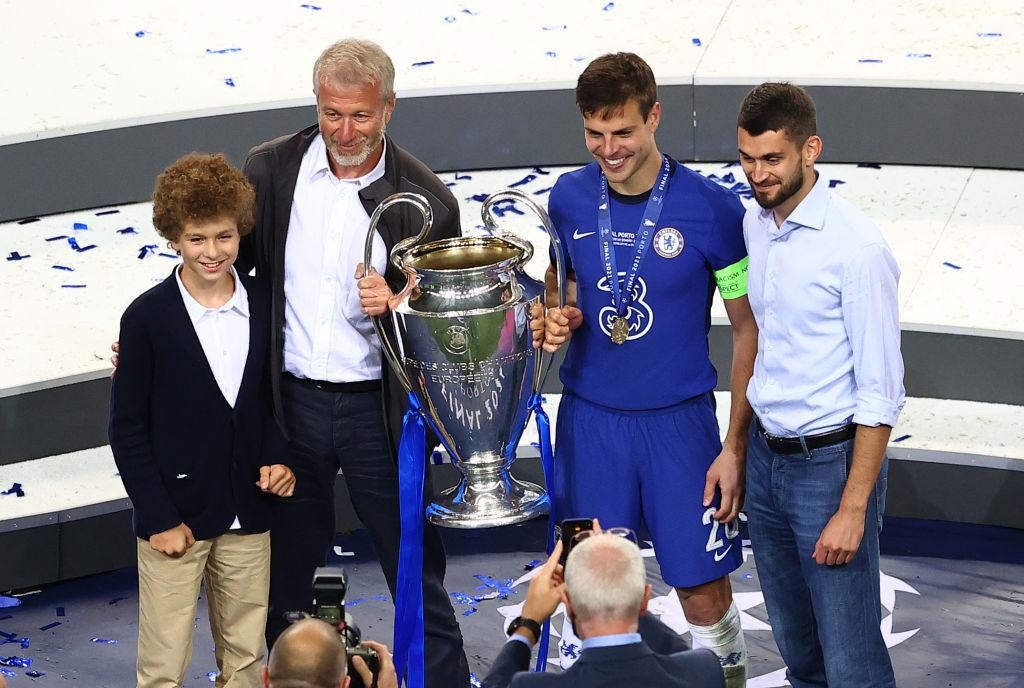Abramovich used football to wash himself clean, now Chelsea must tidy itself up

The cynicism with which Roman Abramovich entangled good things into his ownership of Chelsea puts the real gains made under his tenure at risk.
As a Chelsea fan, he was a person I felt some pride in. He invested in the club, and helped it win. He also created generational role models and changed the culture at Chelsea for the better.
But this wasn’t some altruistic venture. For every rouble he put into the club, Roman Abramovich also invested in himself.
That wasn’t some happy accident, but by design. Abramovich wanted to ensure he was at the centre of a major and public entity with hefty community support. The club’s success was tied to his reputation. But the truth is, Chelsea FC fans have known about his dealings for a long time – they chose to ignore it because of the way Abramovich launched the club to triumph.
The oligarch has a supposed “father-son relationship” with Vladimir Putin, and was the former Governor of Chukotka in Russia, as well as a former member of the State Duma in Moscow. This is before we even scratch the surface of how he acquired and built his wealth.
In 2018, when the Home Office refused to renew Abramovich’s visa because of his ties to Putin, he was still hard at work trying to safeguard his legacy in Britain. He tied himself and his fortune to causes like fighting antisemitism, Holocaust education and his faith – things that are difficult to criticise and call out.
Now the entanglement is unravelling.
Abramovich gained both Israeli and Portuguese citizenship through his Jewish heritage. But now even that is being questioned, and police in Portugal are investigating money laundering, corruption, fraud – and falsification of documents in order to gain citizenship.
After years of supporting and leading antisemitism campaigns at Chelsea, Israel’s national Holocaust memorial museum Yad Vashem severed ties with the oligarch.
Last month, as the vultures were circling, he gave an “eight digit donation” to the museum in a final push to clean up his reputation.
It makes a mockery of many of the causes he tied himself to. He was using them to prop up this facade of “loving” the club, ultimately to insure himself.
As sanctions were looming, he shed political capital, in a bid to buy himself time and favour.
He was owed £1.5bn by the club in loans, and said he’d write it off. He said he’d give all profits for the sale of the club (which it was later ruled he wasn’t allowed to sell), to “all victims of the war” – including the families of Russian soldiers killed.
Now he’s gone, and the legacy of Chelsea FC has been thrown into disarray.
Was he tolerated? Was he embraced? The good things that came out of his ownership were real, even if done as part of a plot to clean himself of the Kremlin. These things may have been a by-product of using Chelsea to improve his image, but trophy success, driving out racism, community projects, and much more, did have real tangible benefits to the business of Chelsea FC.
When the club launched its “Say No To Antisemitism Campaign” in 2018, some dismissed it as a PR stunt. But it raised millions for charities fighting racism, took the team across the world, including to Auschwitz and Israel, as Chelsea put its stars front-and-centre of raising awareness.
This has real-life consequences. There have been countless incidents of Chelsea fans being kicked out the club for antisemitism, racism, and even prosecuted in the case of Sam Mole – sentenced to ten years in prison.
Like it or not, Abramovich drove that change. He turned it into an international brand with an international fan base; one which can’t afford to have extremism, homophobic or antisemitic chanting, or the Nazi thugs at games.
But now it has been transformed back to a club mired with controversy, and dirty money.
Nobody will want to pick up the baton of his legacy. They’ll want to reshape the club’s brand as their own image – and this puts much of the progress under Abramovich at risk.